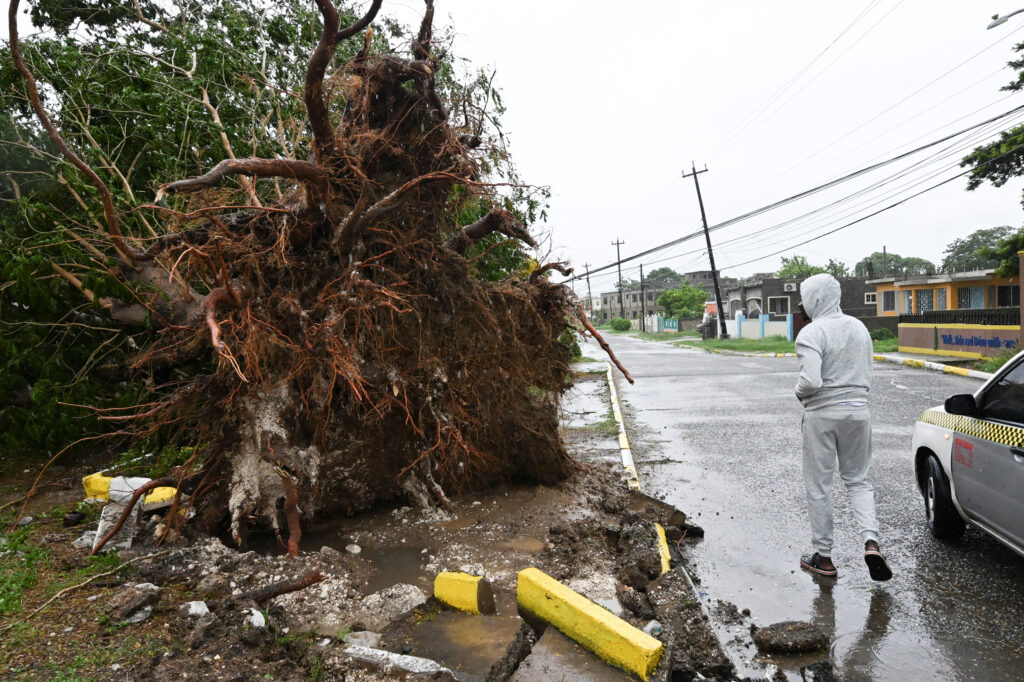Copyright insideclimatenews

Flash floods, landslides and destructive winds could cause “total structural failure” as Melissa, a Category 5 hurricane with winds exceeding 180 miles per hour, made landfall midday Tuesday in Jamaica, according to the U.S. National Hurricane Center. “It will cause catastrophic damage, life-threatening damage,” said Evan Thompson, principal director of the Meteorological Service of Jamaica, in a prepared statement posted on X before the hurricane’s arrival on the island. “There is very little that can stop a Category 5 hurricane.” “This is unfortunately shaping up to be a colossal disaster for Jamaica,” said Kerry Emanuel, professor post-tenure of atmospheric science at the Massachusetts Institute of Technology, and a leading expert on climate change’s effect on hurricanes. “It’s very frightening and saddening to see what’s about to happen.” The hurricane hit the island as research increasingly shows climate change magnifying the destructive force of tropical cyclones. The likelihood of a tropical cyclone becoming a major hurricane increased by 5 percent per decade from 1979 to 2017, according to a global assessment of hurricane activity published in 2020 in the Proceedings of the National Academy of Sciences. At the same time, the speed with which hurricanes intensify has also increased. The number of tropical cyclones in the North Atlantic Ocean that escalated from a minor storm into a major catastrophic event within a period of 36 hours more than doubled from 1971 to 2020, according to a study published in 2023 in the journal Scientific Reports. Emanuel said it’s difficult to attribute the causes of any one storm to climate change. However, he added that there have been three Category 5 hurricanes in the North Atlantic Ocean this year, including Melissa, each of which quickly grew from a relatively weak tropical storm to a powerful hurricane. “We’ve had an unusual number of rapidly intensifying and ultimately intense storms,” Emanuel said. Wind speeds for Melissa increased from 65 miles per hour on Friday evening to 120 miles per hour by early Sunday morning. Emanuel added that increased rainfall, which is also fueled by climate change, often causes more hurricane damage than wind. “As you warm the atmosphere, it holds more water vapor, and that simple piece of physics, all by itself, means that a given storm will produce more rain,” Emanuel said. “This is going to be a really big problem in Jamaica.” The U.S. National Hurricane Center noted that parts of the island nation could receive as much as 30 inches of rain. A rapid attribution study of the storm conducted by ClimaMeter, a project funded by the European Union and the French National Center for Scientific Research, concluded that climate change played a role in the storm’s intensity. “We ascribe the heavier precipitation and enhanced winds in Hurricane Melissa to human-driven climate change,” the group stated. Ian Duff, head of Greenpeace International’s Stop Drilling Start Paying campaign, said that oil companies should pay for the damages caused by the hurricane. “We know hurricanes are being supercharged by fossil fuel-driven climate change – with a warmer North Atlantic Ocean, increasing rainfall, and the risk of coastal flooding,” Duff said in a written statement. “Costs from previous hurricanes have reached hundreds of billions of USD. It’s time to make polluters – not ordinary people – pay for this.” Seven people were reported dead in the Caribbean as a result of the storm, including three in Jamaica, prior to Melissa’s landfall. Melissa is expected to next make landfall in Cuba late Tuesday after it plows through Jamaica. The U.S. Navy evacuated nearly 1,000 people from its base at Guantánamo Bay in the country, including “non-mission essential” Defense Department employees, contractors and their relatives who were flown to Naval Air Station Pensacola in Florida. About 3,000 Guantánamo Bay residents, including 15 wartime detainees and their guards, remain in “hurricane-proof” buildings.



